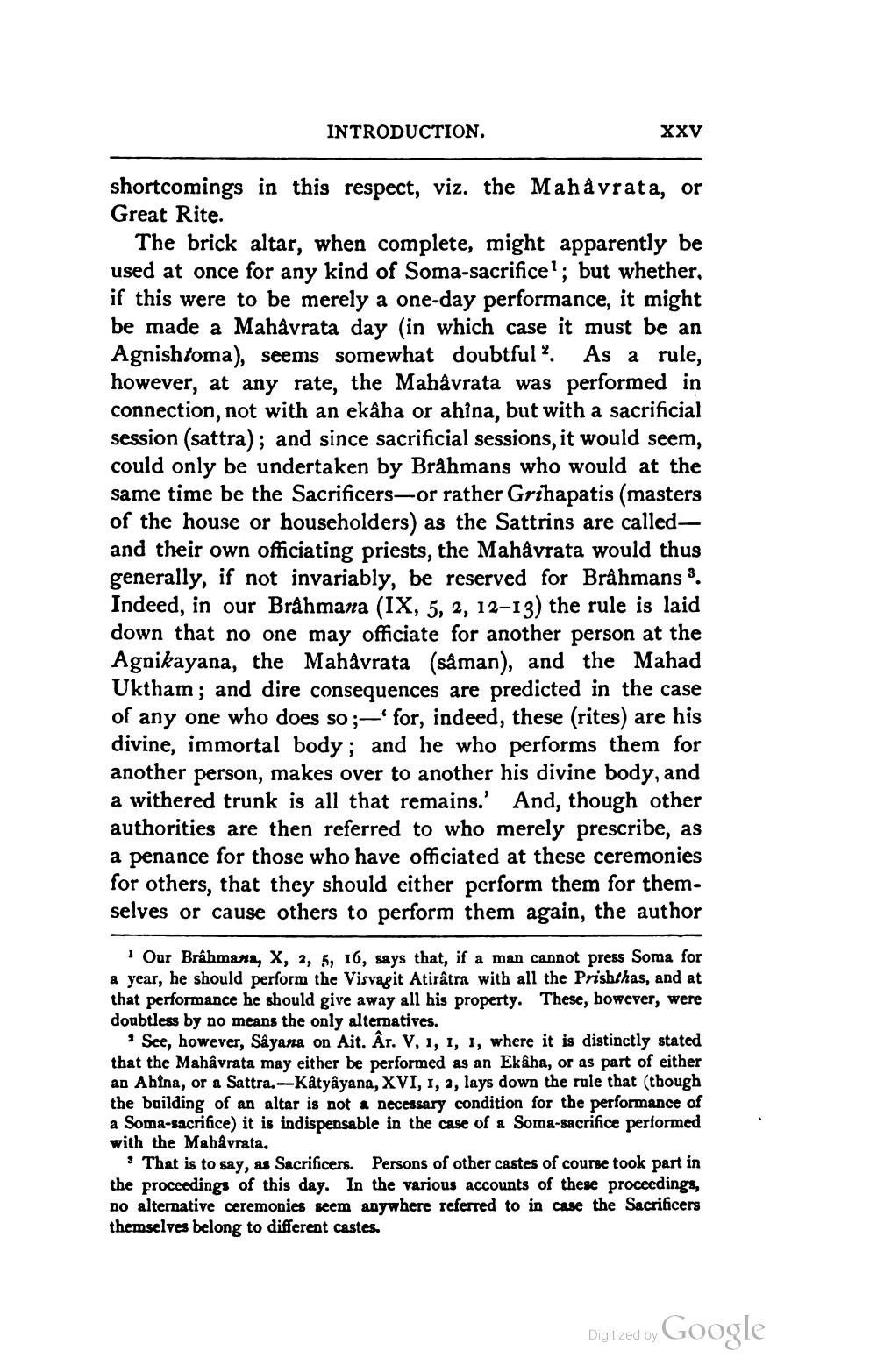________________
INTRODUCTION.
XXV
shortcomings in this respect, viz. the Mahavrata, or Great Rite.
The brick altar, when complete, might apparently be used at once for any kind of Soma-sacrifice?; but whether, if this were to be merely a one-day performance, it might be made a Mahảvrata day (in which case it must be an Agnishtoma), seems somewhat doubtful? As a rule, however, at any rate, the Mahâvrata was performed in connection, not with an ekâha or ahina, but with a sacrificial session (sattra); and since sacrificial sessions, it would seem, could only be undertaken by Brahmans who would at the same time be the Sacrificers—or rather Grihapatis (masters of the house or householders) as the Sattrins are calledand their own officiating priests, the Mahavrata would thus generally, if not invariably, be reserved for Brâhmans 8. Indeed, in our Brahmana (IX, 5, 2, 12-13) the rule is laid down that no one may officiate for another person at the Agnikayana, the Mahåvrata (såman), and the Mahad Uktham; and dire consequences are predicted in the case of any one who does so ;– for, indeed, these (rites) are his divine, immortal body; and he who performs them for another person, makes over to another his divine body, and a withered trunk is all that remains.' And, though other authorities are then referred to who merely prescribe, as a penance for those who have officiated at these ceremonies for others, that they should either perform them for them. selves or cause others to perform them again, the author
Our Brahmana, X, 2, 5, 16, says that, if a man cannot press Soma for a year, he should perform the Visvagit Atirâtra with all the Prishthas, and at that performance he should give away all his property. These, bowever, were doubtless by no means the only alternatives.
* See, however, Sâyana on Ait. Âr. V, 1, 1, 1, where it is distinctly stated that the Mahâvrata may either be performed as an Ekâha, or as part of either an Ahina, or a Sattra.-Katyâyana, XVI, 1, 2, lays down the rule that (though the building of an altar is not a necessary condition for the performance of a Soma-sacrifice) it is indispensable in the case of a Soma-sacrifice performed with the Mahávrata.
* That is to say, as Sacrificers. Persons of other castes of course took part in the proceedings of this day. In the various accounts of these proceedings, no alternative ceremonies seem anywhere referred to in case the Sacrificers themselves belong to different castes.
de Mahá vrata's indispensable in osary condition for
Digitized by Google




